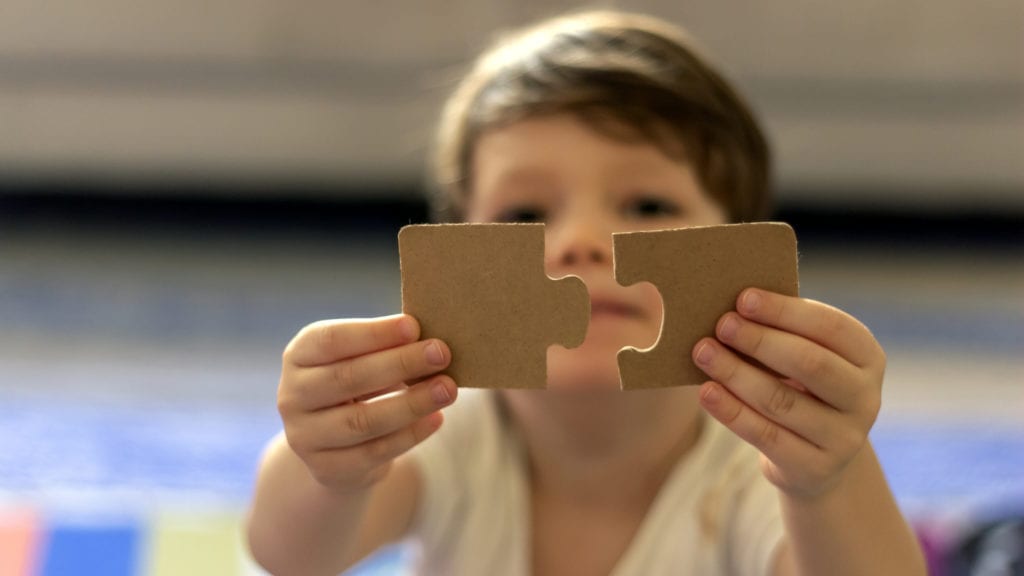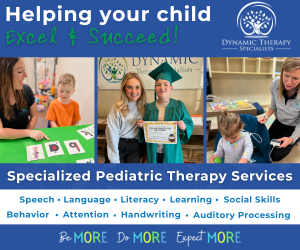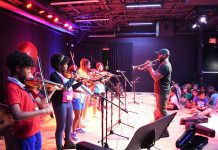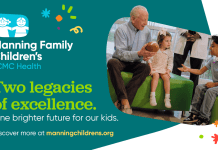Disclosure :: This post is sponsored by Ochsner Baton Rouge.
What Are the Signs of Autism in Toddlers?
When you have a toddler, every day is a learning experience – for your little one and for you as the parent. You watch them grow, develop and experience the world around them for the first time. But what happens when you start to notice signs that your child may not be developing the same as other kids the same age?
There may be specific signals to watch for that could indicate your child has autism spectrum disorder. Signs of this disorder are grouped into two categories: social communication skills and behavioral differences, also known as repetitive and restricted behavior. Here are some behaviors your child might be exhibiting that could point toward an autism spectrum disorder.
Common signs by age:
At 12 months, a child with typical development will turn his head when he hears his name. On the other hand, a child with autism may not turn to look, even after his name is called repeatedly.
At 18 months, a child with delayed speech still points, gestures or uses facial expressions to make up for the speech delays. Think of this like watching a silent movie – there are no words, but you still can understand what the person is trying to communicate. On the other hand, a child with an autism spectrum disorder may whine and cry as the parents are left to anticipate the child’s needs. Another way that a child may communicate a need is by leading the parent by the hand and placing the parent’s hand on the object without making eye contact with the parent. A child with autism also may not enjoy playing with other children, but instead prefer solo activities where he or she will show excitement by smiling or laughing while still not making eye contact.
At 24 months, a typically developing child might excitedly show his or her parents a favorite toy or a new drawing. The child will show the picture, look at the picture, and then look at the parent’s face while directing a smile and making eye contact with the parent. A child with autism might bring his or her markers or toys for the parent to open but does not make eye contact or direct a facial expression at the parent.
Early signs of autism spectrum disorders
Social communication differences:
- May have temperamental differences during infancy, such as being a very quiet baby or a very fussy baby
- Makes little or no eye contact
- May avoid following a parent’s gaze or finger to see what the parent is looking at or pointing to
- Little to no pointing at objects to get parents to look at them
- Shows little or no expression in response to a parent’s smile or other facial expressions
- Less likely to bring objects to show their parents in order to share their interest
- Less likely to show appropriate facial expressions
- Difficulty noticing other people’s emotions
- Less likely to show empathy
- Prefers to be alone or has difficulty establishing and maintaining friendships
- Responds to sounds but may be less likely to respond to own name
- May repeat what others say or what they hear
- Less likely to engage in a conversation with others
- May have a good memory for numbers, songs, TV shows or other specific topics
- Some children lose language skills they had previously obtained
Behavioral differences:
- May rock, spin, sway, twirl fingers or flap hands
- Prefers routines, order or rituals
- May be obsessed with a few activities and doing them repeatedly throughout the day
- More likely to play with the parts of toys instead of the whole toy. For example, showing intense interest in spinning the wheels of a truck, as opposed to playing with or “driving around” the whole truck
- May be able to read at an early age but often without understanding the material
- May be very sensitive or not sensitive at all to smells, sounds, textures, touch and pain
- May have unusual use of vision or gaze such as looking at objects from the corner of their eyes
- May have unusual or intense interest
If you think your child could have autism spectrum disorder, let our experts at the Michael R. Boh Center for Child Development help.
Lee Ann Annotti, PhD: Dr. Lee Ann Annotti received her undergraduate degree from

Jennifer Hogan, MD: Dr. Jennifer Hogan completed her undergraduate studies at Rice University in Houston, Texas, and earned a master’s degree in public health at the 


















